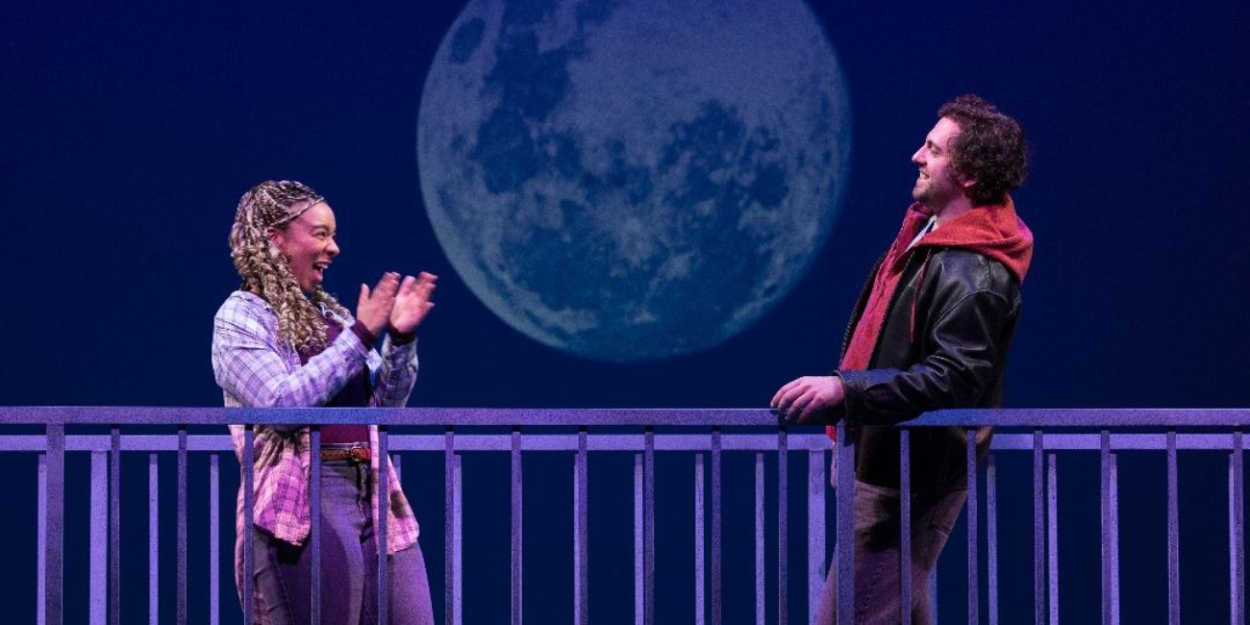Review: JUMP to See this Relevant New Work at B Street Theatre
Sparking Important Conversation Through November 5th

Following in the wake of a play like The Play That Goes Wrong is no easy feat. It would be easy to fall into the shadows and be overlooked, and B Street Theatre’s Executive Director, Lyndsay Burch, took a calculated risk in choosing a drama filled with some loaded content. After seeing the new work, I can say that the risk paid off. Charly Evon Simpson’s play, Jump, is filled with heartfelt candor, raw emotion, and some infectious hope for the future.
You can get an idea of what Jump is about just from the title. The opening scene solidifies the anticipation of tragedy when the lights come up and Fay (Diona Elise Burnett) is smoking a vape on a bridge. When she throws one vape off the bridge, another immediately replaces it. The bridge is both a magical place and one of warring emotions. Comfort and pain clearly clash on Fay’s visits as she wrestles with her solitude and complicated family dynamics. One day, her introspection is interrupted by an enigmatic (and slightly annoying) newcomer. Hopkins (Hunter Hoffman) is also no stranger to this place and, despite his own fraught relationship with the bridge, he shares some therapeutic air guitar with Fay that breaks the ice and sets the stage for a tentative friendship. Just in front of the bridge is the suggestion of a split-level house that is also going through a transition. Its owner, Fay’s dad (Robert Karma Robinson), is selling what was the family home that he abandoned after his wife’s death. Between her forays to the bridge and Hopkins, Fay goes through the turmoil of downsizing a lifetime to a single box. She and her sister, Judy (Imani Mitchell), bicker and reminisce about their childhood and who bears the responsibility of taking care of their faltering father. Peppered throughout the dialogue are Fay’s episodes that are accompanied by ominous sounds that rouse a conditioned response of fear and dread. Is she suffering from delusions? Migraines? Time travel? The audience is left wondering until, in an unexpected twist, we learn that sometimes those who seem the strongest can’t resist l’appel du vide, the call of the void.
Director Jerry Montoya has helped develop another hit for B Street, coaxing emotive performances from a gifted crew. Robinson cuts both a formidable and sympathetic father figure, one who is brought down by circumstance and vice. He’s the stereotype of the suburban dad who is devastated by his (imagined) failure to save his family. Mitchell nails the quintessential oldest child. Her Judy is responsible, successful, and has a true Type A personality. Dismiss any inkling of nostalgia? Check. Take care of aging parents? Check. Hide feelings of being overwhelmed and unappreciated? Check. The most compelling parts of the story exist in the interactions between Burnett and Hoffman’s characters, as they delve deep into the psychology of their actions and why they are drawn to the bridge. A place both beautiful and functional, it keeps drawing them back to hurt them, stretch them, and, eventually, heal them.
While there are many important themes running through this show, the most visible and most pressing is the focus on mental health. In the conversations between Fay and Hopkins, we see that there are a lot of things that we can do to make the world a little less indifferent. Listen, express empathy, reach out, be present.
“You seem okay.”
“I often do.”
Jump to see this important new work at the B Street Theatre through November 5. Tickets may be purchased online at BStreetTheatre.org, at the Box Office at 2700 Capitol Avenue, or by telephone at (916) 443-5300.
Photo credit: Rudy Meyers
Reader Reviews
Videos

